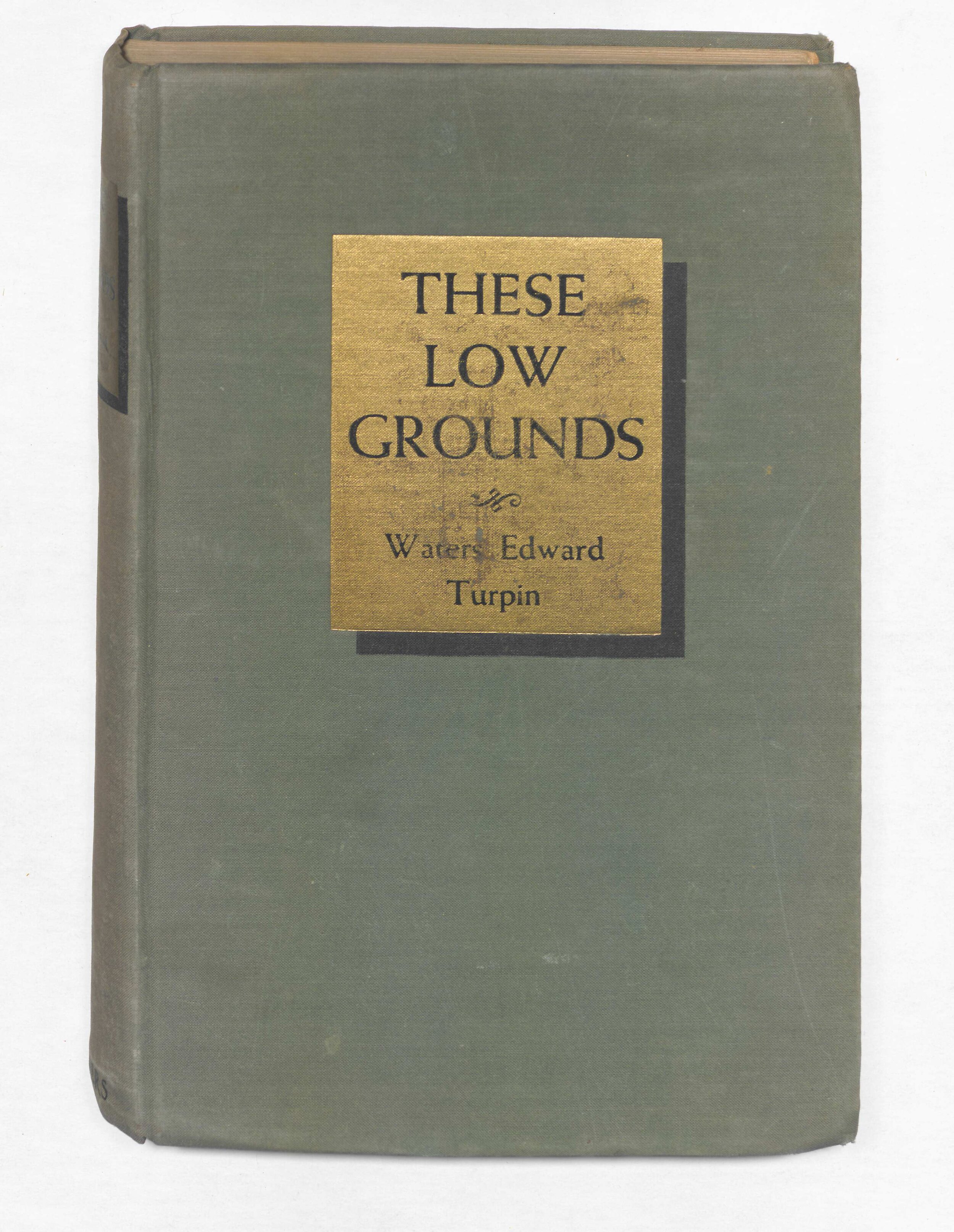Waters Edward Turpin, These Low Grounds
Waters Edward Turpin
These Low Grounds
1937
“Are we not all sisters and brothers down here in these low grounds of sorrow?” returned the pastor, evenly. “Won’t you sit down?”
Waters Edward Turpin (1910-1968) was born and raised in Oxford. His grandfather, Captain Jack Waters was reputed to have the first black-owned waterman’s business in Oxford, and raised his grandson on the water with the earliest oral histories dating back to slave ships. Oxford is unique as the only documented Middle Passage stop on the Eastern Shore of Delaware, Maryland, and Virginia. (Curiously there is no sign commemorating this fact.)
Waters Turpin’s mother, Rebecca Henry, worked for authoress Edna Ferber of Showboat fame for many decades. Ms. Ferber allowed Waters to grow up in her library while her mother ran the household. Ferber wrote fondly of Rebecca Henry and was astounded by Waters Turpin’s gifts as a writer. In her 1939 autobiography, A Peculiar Treasure, Ferber wrote:
It was at this time [1925] that there walked into my life that amazing and dimensional human being, Mrs. Rebecca Henry. Hailing from Maryland, she was–and is–a superb example of the Negro race. For almost fifteen years she has been a working member of my household. I think no one in my life has brought me more comfort and happiness. Anyone who has known me during these past fourteen or fifteen years has known Rebecca. A person of taste and distinction...Her people in Maryland and Washington are physicians, teachers, civil-service employees. A widow, she has a son, Waters Turpin, by her first marriage, whose first novel got reviews that would have made me jealous if i hadn’t been so pleased, and whose second novel bids fair to rival the first. Novels of American Negro life, they are; but none of this Sambo stuff. Rebecca has taken a quiet pride in this achievement, but she never refers to it, and on the Sunday morning that brought us the New York Times’ superb review of her son’s book, These Low Grounds, my waffles and maple syrup were as crisp, as golden, as toothsome as though no undue excitement marked the day.
Below is a selection of excerpts from his first book, These Low Grounds. Turpin describes the Eastern Shore, and Oxford in particular, with attention to detail and also to the epic nature that defines the place:
It is a low, flat land, the Eastern Shore of Maryland. It crouches there between the Chesapeake on the west and the state of Delaware on the east. Toward the south the green waters of the Atlantic wash lazily—lazily, that is, until one of those northeastern gales frightens the ocean out of its calm. At such times, gigantic billows blast the frail man-made bulwarks and wipe away, as by the sweep of an angry god’s broom, those little clusters of frame houses and hotels which are the sea-shore resorts. And the tidal waters of the Choptank, the Miles, the Shannon, the Tred-Avon, and others of the rivers, flood the inland towns, driving the population into the upper rooms of their dwellings. Then the refuse from the outhouses floats in the streets until the waters subside. And the crops of the farmers are ruined, and their livestock lost.
It crouches there, the Shore, like a sulking, neglected child, with its scattered hamlets, towns, and villages. Some of them have caught the modern spirit; others lie in dull contentment with their lot beneath whatever kind of sky the fates provide. The farmers plow, plant, and reap. The river men snatch their produce from the streams. The canners pack their tomatoes and peas. And natives of all persuasions are born, live, propagate, decline, and are buried beneath the low, flat land, in order that their children may take up the thread of life.
The crab-house sat on that point of land known as The Island, at the juncture of the Avondale [Tred Avon] and Town Creek. Originally a swampy waste caused by the tidal flow, it had been built up to usefulness by an accumulation of oyster shells. A neck of soggy land isolated it effectively from the town of Herdford [Oxford] proper.
The Good Brother’s Hall—a magnificent structure of red tin [N.E. corner of Tilghman and Stewart]—had had a thorough scouring by the Brothers Wives. Bunting in many colors draped the ceiling and walls of the assembly-room. The platform was gay with paper streamers in honor of the Bainbridge band. Long tables of smooth planks mounted on saw-horses and spread with new oilcloth bordered three walls. An inviting smell of fried oysters pervaded the place. It was December, and the annual oyster supper and dance was in full spring.

